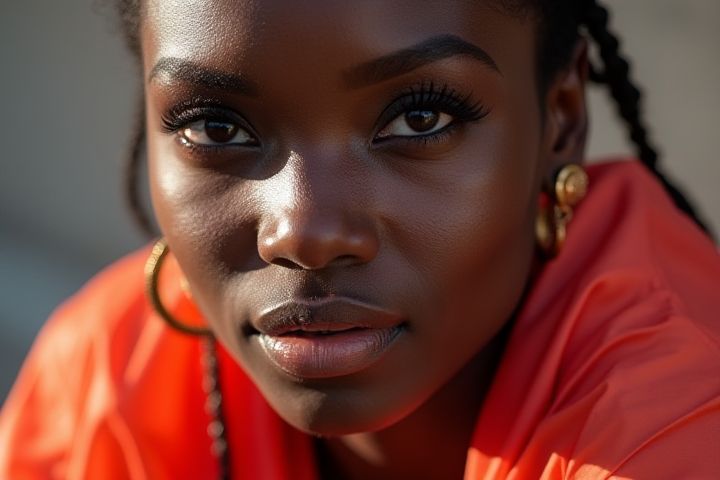
The Nigerian fashion industry is a vibrant and rapidly growing sector that celebrates rich cultural heritage through innovative designs and fabrics. Designers such as Deola Sagoe and Lisa Folawiyo have gained international acclaim, showcasing traditional textiles like Ankara and Aso Oke while incorporating modern aesthetics. Lagos Fashion Week serves as a prominent platform, highlighting emerging talents and promoting sustainability in fashion. The industry also fosters local entrepreneurship, providing job opportunities for artisans and tailors, thus boosting the economy. Your engagement with Nigerian fashion not only supports local craftsmanship but also embraces a unique fusion of tradition and contemporary style.
Indigenous textiles
The Nigerian fashion industry has increasingly embraced indigenous textiles, showcasing the rich cultural heritage and craftsmanship unique to the region. Designers are incorporating traditional materials such as Aso Oke, Adire, and Ankara into modern styles, enriching the global fashion landscape with vibrant patterns and textures. This revival not only promotes local artisans but also attracts international attention, positioning Nigeria as a burgeoning hub for sustainable fashion. By supporting local textile production, you contribute to the preservation of cultural identity and economic growth within the community.
Vibrant fashion week events
The Nigerian fashion industry thrives on vibrant fashion week events, showcasing a rich tapestry of cultural heritage and contemporary designs. These events attract local and international designers, providing a platform for emerging talent while promoting sustainable fashion practices. Noteworthy showcases, such as Arise Fashion Week and Lagos Fashion Week, emphasize innovation in textile production and craftsmanship. You can expect to see a fusion of traditional African styles with global trends, reflecting the dynamic nature of Nigeria's fashion landscape.
Increasing online retail presence
The Nigerian fashion industry is rapidly expanding its online retail presence, reflecting a significant shift toward e-commerce. Brands are leveraging social media platforms and dedicated websites to reach a wider audience, facilitating access to both local and international markets. This digital transformation allows for enhanced customer engagement through personalized shopping experiences, fashion trends, and influencer collaborations. By embracing technology, Nigerian designers and retailers are not only increasing visibility but also contributing to the growth of the country's economy within the global fashion landscape.
Rising local designers
The fashion industry in Nigeria is experiencing a significant transformation, shining a spotlight on rising local designers who are redefining contemporary African aesthetics. This vibrant scene is characterized by an emphasis on unique textile patterns, sustainable practices, and the incorporation of traditional artisanal techniques. Events such as Lagos Fashion Week serve as a crucial platform, connecting emerging talents with global markets and influential figures in the industry. As a result, Nigerian fashion is not only gaining international recognition but also fostering cultural pride and economic growth within the local community.
Traditional craftsmanship
The Nigerian fashion industry showcases a rich tapestry of traditional craftsmanship, highlighting indigenous techniques and materials that reflect the country's diverse cultures. Artisans employ time-honored methods such as beadwork, tie-dye, and handwoven textiles, creating garments that are both unique and representative of their heritage. Fashion designers increasingly incorporate traditional elements into contemporary styles, bridging the gap between the past and modern aesthetics. As you immerse yourself in this vibrant landscape, you can appreciate how these practices not only sustain local economies but also preserve cultural identities.
Ankara fabric popularity
The Nigerian fashion industry has increasingly embraced the vibrant Ankara fabric, known for its colorful patterns and versatility in design. This traditional textile is not only a symbol of cultural heritage but also serves as a canvas for innovative styles that appeal to both local and international markets. Designers are creating stunning collections that showcase unique silhouettes and contemporary aesthetics, elevating Ankara to a fashionable choice for various occasions. As you explore this dynamic sector, you'll discover how Ankara is shaping trends and driving economic growth in Nigeria's fashion landscape.
Sustainable fashion initiatives
The fashion industry in Nigeria is increasingly embracing sustainable fashion initiatives, emphasizing eco-friendly materials and ethical production practices. Local designers are prioritizing craftsmanship and sourcing fabrics from indigenous suppliers to reduce environmental impact. This shift not only promotes cultural heritage but also supports local economies, creating job opportunities within communities. You can contribute to this movement by choosing to support brands that practice sustainability and celebrate the rich tapestry of Nigerian fashion.
Influencer-driven trends
The Nigerian fashion industry increasingly revolves around influencer-driven trends, where social media personalities shape consumer preferences and brand visibility. Influencers leverage platforms like Instagram and TikTok to showcase local designers, promoting a blend of traditional and contemporary styles that resonate with younger audiences. This dynamic landscape fosters a vibrant marketplace, where emerging talents gain recognition through strategic collaborations and curated content. As you engage with these platforms, you contribute to a cultural shift that celebrates local craftsmanship while embracing global fashion influences.
Fashion tech startups
The fashion industry in Nigeria is witnessing a surge in fashion tech startups, which are revolutionizing the way clothing is designed, produced, and marketed. These startups leverage innovative technologies such as Artificial Intelligence, Augmented Reality, and e-commerce platforms to enhance the consumer experience and streamline operations. By embracing digital solutions, Nigerian fashion tech entrepreneurs are tapping into both local and international markets, showcasing the rich cultural heritage while also catering to modern trends. You can explore how these developments are not only creating job opportunities but also fostering a vibrant ecosystem for creativity and collaboration within the fashion sector.
Global market influence
The Nigerian fashion industry is increasingly influenced by global market trends, showcasing a vibrant blend of traditional elements and contemporary styles. Designers leverage social media platforms to reach international audiences, utilizing digital marketing strategies to enhance brand visibility. Furthermore, Nigeria's rich cultural heritage inspires unique designs that attract global interest, establishing the country as a significant player in the fashion landscape. Your engagement with Nigerian fashion can introduce you to diverse textiles and innovative craftsmanship that reflect both local and global influences.
